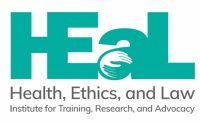Short-Duration Intensive Training in Research Ethics for Social Science and Public Health Research | June 26 -30, 2019
Organisers:
- Forum for Medical Ethics Society (FMES), Mumbai; FMES’ Health, Ethics, and Law Institute for Training, Research and Advocacy (HEaL Institute) in collaboration with
- Nabakrushna Choudhury Centre for Development Studies (NCDS), Bhubaneshwar, Odisha
Day & Dates: Wednesday, June 26 to Sunday, June 30, 2019| 09:30 – 17:30
Venue: Conference Hall, Nabakrushna Choudhury Centre for Development Studies, Bhubaneshwar
About the course
The course curriculum has a legacy of 15 years to which a number of scholars including those trained in bioethics have contributed. Over time they developed research ethics case studies from the Indian context. These serve as one of the key resources for the course.
The course aims to equip course participants with knowledge and skills in research ethics. They would serve as significant human resource to take the learnings to their own ecosystems and facilitate knowledge transfer in research ethics.
Goal: To enable participants to appreciate the salience of research ethics in upholding research integrity; and identify and apply ethical reasoning to social science research in health and to public health research.
Specific objectives:
- To learn about history and origins of research ethics discourse and principles in research ethics in social sciences and public health research and their relevance to contemporary research in social sciences and public health.
- To strengthen the awareness of participants of ethical issues in research involving human participants, and their appreciation of the need for research integrity
- To draw upon the key resources in international ethics guidance such as the Tri-Council Policy Statement, Canada; the Helsinki Declaration, and other ethics guidelines issued by both national and international organizations, pertaining to the social sciences and public health fields; and help locate them in local contexts.
- To strengthen the understanding of specific concepts in research ethics (privacy, confidentiality, standard of care, informed consent process, collaborative research, publication ethics, research integrity,); and appreciate research ethics challenges specific to research design, special groups with enhanced vulnerabilities; situational vulnerabilities in the context of research in social sciences (in health) & public health sciences.
- To learn the application of ethical reasoning to respond to the aforesaid challenges posed by social science (in health) and public health research; and enhancing skills in operationalizing research ethics principles in practice.
Course Faculty:
- Dr Amar Jesani, MBBS, Independent Researchers and Consultant, Pubic Health and Bioethics, Mumbai; and Editor, Indian Journal of Medical Ethics (IJME)
- Prof Dr Srijit Mishra, PhD, Development Economist; Director, Nabakrushna Centre for Development Studies (ICSSR Research Centre), Bhubaneshwar [Course Director]
- Dr Sunita Sheel Bandewar, PhD (Anthropology) and Masters in Bioethics (Toronto, Canada), Independent Researcher, Pune; Working Editor, IJME; and Director, Health, Ethics and Law Institute of Training, Research and Advocacy, Mumbai-Pune [Course Director]
- Prof Mala Ramanathan, PhD, Masters in Medical Anthropology, Bioethics (Harvard), AMCHSS, SCTIMST, Trivandrum; Working Editor, IJME; Member Secretary, IEC
Learning methods:
- Interactive methods involving small batches case studies, short videos; role play; and mock ethics review board meetings.
- Case studies sourced and developed from within India to be complemented by those involved in international collaborative research.
- Mock ethics review boards consisting of the training program participants conducting a mock ERB meeting to evaluate 2-3 anonymised research ethics protocols.



